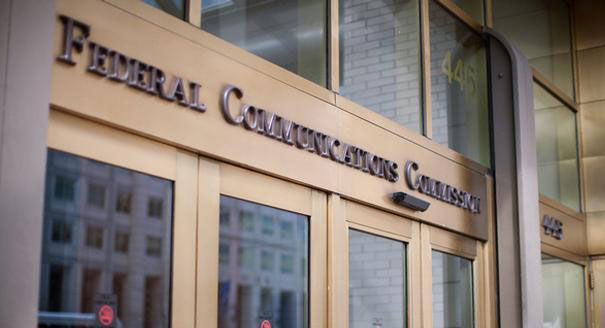
Register Now! - NEBSA 2026 Annual Conference
NEBSA 2025 Annual Virtual Conference Registration Open
FCC Tribal License Reporting Deadline Approaches
NEBSA 2023 Conference Registration
Free Webinar - T-Mobile Migration 2022 - What's Next?
FCC Releases Public Notice for EBS Auction 108
FCC Commits Nearly $64 Billion in Latest Round of Emergency Connectivity Funding
FCC Releases Notices on White Space Auction
FCC Approves Additional 2.5 GHz Spectrum Licenses to Serve Alaska Native Communities
New Chair Nominated for the FCC
NEBSA 2022 Conference Registration
Innovation and Education In 2.5 GHz Webinar
Save the Date - NEBSA 2022 Annual Virtual Conference (Feb 28 to Mar 1, 2022)
First interactive, public broadband digital map released
NEBSA Provides Informative Webinar on 2.5 GHz Issues for Tribes
SAVE THE DATE FOR AN IMPORTANT NEW WEBINAR ON 2.5 GHz LICENSES FOR TRIBAL LANDS!
T-Mobile Sponsors 2022 NEBSA Conference
Acting FCC Chief States "Homework Gap" Vote by Mid-May
FCC Creating Rules for Broadband Discount Program
NEBSA 2021 Annual Virtual Conference Closes
Do You Have Potential Regulatory Issues Lurking In Your Future?
Commissioner Jessica Rosenworcel Named as FCC Acting Chairwoman
SHLB Coalition, CoSN, SETDA, Voqal, and Hundreds of Signatories Petition the FCC to Save EBS
Over 800 public interest, education and commercial signatories emphasize that keeping EBS educational is vital to close the homework gap
 Washington, D.C. – Over 830 signatories representing educational institutions, rural operators, public libraries, nonprofit organizations, anchor institutions, individuals and public interest groups from 48 states and the District of Columbia united in petitioning the Federal Communications Commission (FCC) to ensure Educational Broadband Service (EBS) continues to serve its intended educational and public interest purposes. The signatories also ask the FCC to make new EBS licenses available for educational entities and Tribal Nations to connect their communities.
Washington, D.C. – Over 830 signatories representing educational institutions, rural operators, public libraries, nonprofit organizations, anchor institutions, individuals and public interest groups from 48 states and the District of Columbia united in petitioning the Federal Communications Commission (FCC) to ensure Educational Broadband Service (EBS) continues to serve its intended educational and public interest purposes. The signatories also ask the FCC to make new EBS licenses available for educational entities and Tribal Nations to connect their communities.
EBS is currently the only licensed spectrum available for educational institutions to serve their communities. Twenty-three years ago, the FCC stopped issuing new EBS licenses, leaving 50 percent of the geography of the United States, primarily rural areas, without access to this portion of the 2.5 GHz band. The FCC is expected to reach a decision this summer about how to make this spectrum available. It has sought comment on whether to give educational and Tribal entities the first opportunity to obtain this spectrum, or whether to proceed immediately to a commercial auction and eliminate the requirement that licenses be held by an educational or nonprofit entity.
The signatories emphasize that EBS is a critical tool for addressing the “homework gap,” or the systematic inequality arising from a student’s inability to access the Internet to complete homework. In 2015, the National Center for Education Statistics reported that 80 percent of eighth-graders used a computer for schoolwork on a weekday, though 7 million American students still lack home Internet access. Today, educators use EBS to combat the digital divide and homework gap by building their own broadband networks, creating mobile hotspot lending programs, and providing Wi-Fi on school buses. The petition also highlights the importance of giving educational and Tribal entities an opportunity to obtain new EBS spectrum and drive rural deployment to the same areas in which the commercial sector fails to serve millions of Americans, despite having ample spectrum.
As the one-year mark of the FCC’s Notice of Proposed Rulemaking approaches on May 9th, educational and public interest groups are weighing in on the gravity and timeliness of this proceeding, given that the FCC is expected to issue a decision on the rulemaking soon.
"Anchor institutions are committed to supporting their communities and helping them flourish, which is why thehave the best incentive to close the homework gap using EBS spectrum. Auctioning off EBS to the highest bidder will take away spectrum that schools and Tribal Nations could use to connect hundreds of thousands of children to high-speed Internet. Large commercial carriers face difficult economics when it comes to building out to unserved or under-served communities - and more spectrum won't change that. The SHLB Coalition urges the FCC to keep EBS educational via priority licensing windows for educational institutions and Tribal Nations." John Windhausen Jr., Executive Director, the SHLB Coalition
“School districts need new tools for connecting rural, low income and other marginalized students to broadband. The Educational Broadband Service (EBS) offers a way to connect more kids to the online resources they need. CoSN strongly encourages the FCC to not miss this opportunity to close the ‘homework gap’ by offering new EBS licenses for learning.” Keith Krueger, CEO, CoSN – Consortium for School Networking